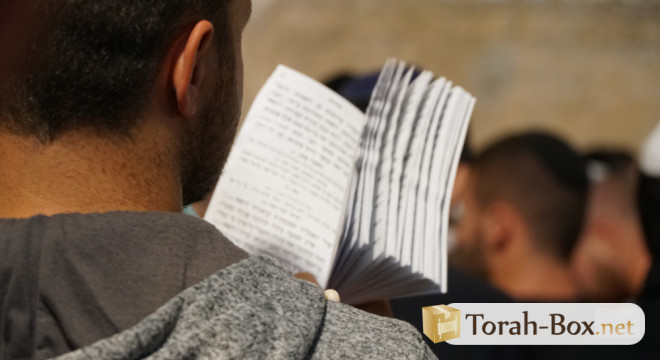
Jewish Thinking
I Cannot Concentrate for the Three Prayers
Question from Lionel B.
Shalom Rav Scemama,
I very much appreciate your very relevant and interesting advice. Thank G-d, I have been doing Teshuva for four years, but there is one area in which I struggle enormously, it is that of prayer. It is very difficult for me to find enthusiasm when repeating Amida three times a day. I cannot force myself. I cannot do it.
Moreover, the prayer, in general, is too long, especially on Shabbat morning. I have to go out of the synagogue from time to time to breath fresh air. Thank you for your reply.
Rav Daniel Scemama's answer:
Shalom Lionel,
Know that you are not the only one with these feelings. First, a small introduction to the meaning of prayer and its establishment. The Ramchal, in his book "Derech Hashem" writes: Man being forced to work in the labyrinths of materiality - for his sustenance- risks losing himself in the darkness of this world. Therefore, the L-rd has provided a way to deal with this problem through prayer: By addressing G-d and asking Him for all his needs, man is in an intimate relationship with Him and it only increases. This mark of dependence on G-d prevents a man from plunging into materialism and causes him to precede all his actions with prayer. To strengthen this privileged relationship, G-d has made part of what He bestows upon man, sustenance, health, and peace, dependent on prayer. Since prayer is a real need, it is necessary to prepare oneself before addressing G-d. Therefore, our Sages have instituted texts to read, blessings and psalms, which precede the Amida, which is the main prayer. The Rambam reports that our Sages fixed 3 prayers a day in relation to the sacrifices offered in the Temple. They also fixed the prayer in Hebrew and established the Tefila of 19 blessings in which all the great individual and collective needs of a Jew are expressed.
Practically:
In order to find a taste for prayer, it is necessary to first overcome technical difficulties.
1. To understand what we are saying, one must pray using a translated Siddur. You have to pray gradually, starting with the main prayers and leaving additions that are not essential (you must take advice from a Rav for this).
2. Look for a synagogue whose atmosphere you like, even if it is farther away than another or even if the prayer is in a different rite than yours.
The songs and joy that mark a place of prayer are very important.
3. At the end of the prayer, we can add personal requests in our language. Through this, we create a true relationship with G-d, since we express what touches the depth of our being. In the same way, the study of the laws that govern Tefilla and the books that deal with this subject (such as "Praying with Fire" by Rav Kleiman) revive the heart of man for this Mitzvah.
But you must not force your fervor. It must come on its own.
4. Of course, the biggest work to be able to pray sincerely is Emunah - faith. We need to find time, even outside the time of Tefilla, to anchor in our hearts that G-d is the Master of the world and that only He has the means to help man, that He constantly intervenes in the collective and individual history of humanity, that He loves His creatures more than we love ourselves, and knows perfectly well what is good for us. The more this consciousness is anchored in us, the more we will aspire to address Him.
That is why, the practice of "Hitbodedut" is developing more and more in many circles, and not only amongst Breslover Chassidim. It is to be alone in a quiet place (some go into nature) and one speaks to G-d freely, as a son speaks to his father.
If we can find the taste of prayer, it will become for us a moment of pleasure and comfort.
It is said that Rav Wolbe's students once caught him praying Mincha alone in the early afternoon. To their astonishment, the Rav answered that he so much wanted to pray that he could not wait until the end of the afternoon when the communal prayer took place with a Minyan.
May we all arrive at this feeling!
Torah-Box.net Account
To access the entire Torah-Box.net website, sign up for free in less than a minute.
Weekly Parsha
 Candle Lighting - New York
Candle Lighting - New York
Friday March 6th, 2026 at 17:34 *Shabbat ends at 18:35 *
change my location
* Times given as an indication, check the times of your community











